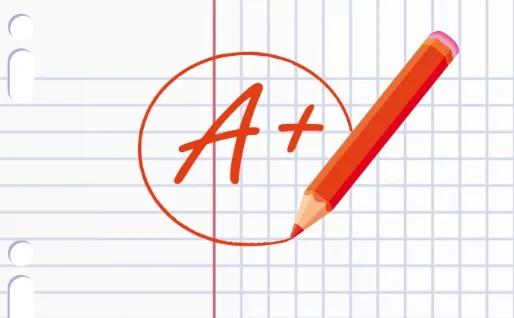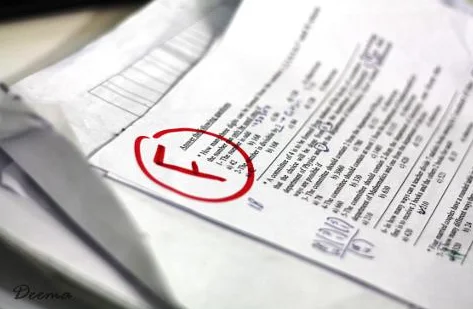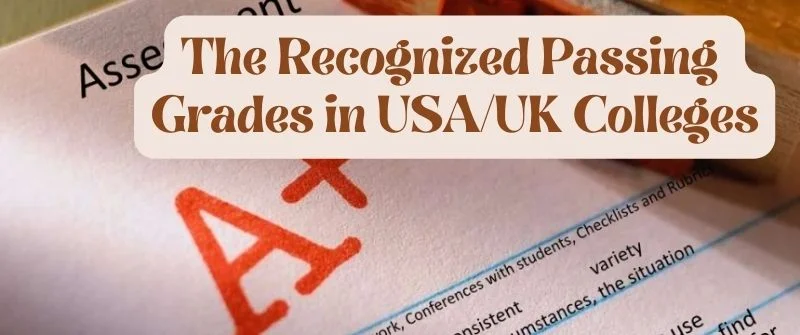College is expensive. However, if you are asking yourself, “What is the passing grade in college?” then you are probably wondering how much money you will have to pay for your tuition and the expenses involved with the college.
There’s no easy way to handle how much one should expect to pay for school, so we’ll try to provide an estimate.
What is Passing Grades in College?
Passing grades are the minimum standards for a student to complete a course or program of study. A passing grade is awarded when a student earns at least 50 percent of the course’s possible points.

There are several different ways to determine if a student has passed a class:
The instructor must assign all students an A, B, C, D, or F. If the instructor fails to assign grades, then no one will be able to receive credit for their work.
The course syllabus stipulates how many points are needed to pass each class and how many points are required for each assignment. For example, if a student earns 80 percent in an English class, they should earn at least 40 points to pass the course.
In some cases, students can earn extra credit by working on additional assignments or completing other requirements, such as participation in discussion sections or presentations.
What is the Passing Mark in College?
The passing mark in a college is the minimum score a student needs to earn to pass their exams. The passing mark is calculated by adding the individual marks of all the tests taken and dividing it by the total number of attempts.
This system aims to ensure that students who do not score well on one or two subjects can still complete their degree requirements. The do this using a grading scale.
For example, if an A+ student has failed three subjects but has a strong grade average, he or she may still be able to pass with a B+ in his other subjects.

For instance, if a professor demands an A in every class, it’s important to know how many students can attain this goal.
In order for one student to receive an A average for the entire semester, she must earn at least 65% of all possible points on her exams and assignments.
To get an A average for the entire semester, she must get 65% or better on each exam and assignment and have no more than two absences during the semester (if she has more than two absences, then the lowest grade that still meets the criteria becomes her final grade).
Comparing Passing grades in USA and UK
The passing grades in UK and USA are different from one another. In the UK, the passing grade is 70%, and in the USA, it is 80%.
In the UK, if you score 60% or more in your first attempt, you can apply for a re-sit. You will have to repeat the examination if you get less than 60% on your second attempt. In the USA, if you score 70%, then you can apply for a re-sit and if not, then retake it.
The difference between a passing grade in the two countries is mostly because of the different grading systems used. In the USA, students are graded on a scale from 1 to 100, with 10 being the lowest and 100 being the highest percentage.
In the UK, students are graded from A1* to G1*, with A* being the highest mark possible.

The US and UK both have different approaches to passing grades. In the UK, you have to get a certain number of marks in a subject. If you do not get these marks, your grade will not be an A or B.
You will have to sit for re-examinations; if you fail again, your result will come out as F or U (fail).
In the US, there is no such thing as a failing grade. If you do not pass the course with a certain grade, then it means that you have failed.
However, some universities allow students who failed their courses to retake them, provided they take all classes simultaneously and pay for them themselves.
Factors Determining Variations in the Pass Mark
1. Number of Attempts
An institution may set a minimum number of attempts before allowing students to withdraw from courses without penalty.
For example, some institutions require students to make at least two attempts before they can withdraw from a course.
If a student fails twice within one year (or has more than one withdrawal), he or she will not be allowed to withdraw until all requirements have been completed successfully.
2. Failing Courses
Some institutions will allow students who fail two or more courses during any semester to repeat them without penalty if they receive an “A” grade on each attempt.
Other institutions will allow students who fail two or more courses each semester but receive a “C” or lower on each attempt to repeat only those courses.
Reasons Why Some Students Don’t Score the Pass Mark
Students who don’t pass the exam can face severe consequences. It is important to know the reasons why some students fail to score the pass mark.
The following are some of the major reasons why some students fail to score the pass mark:

1. They don’t prepare well for their exams. Students may not study enough for their exams, affecting their performance in the examination arena. Students must be prepared for each exam by ensuring they understand all aspects of the subject, including its scope and content. They should also be alert during exams to answer questions quickly and correctly.
2. They cannot concentrate on their studies due to other commitments such as family members’ activities or other responsibilities at home or elsewhere. Many distractions may prevent students from concentrating on their studies and thus affect their overall performance in examinations, resulting in lower scores than expected.
3. Some students fail because they do not have a clear idea about what will be asked in an exam before sitting for it, which can result in poor results since they cannot focus properly on the subject matter being studied; they tend not to study hard enough, which affects how well they perform during an exam
Tips on How to Get a Passing Grade
A good grade is important in life, especially in your studies. However, there are times when you might want to pass the exam but fail to do so. If this happens, then you should try some of the following tips.

First of all, if you are unsure how to answer any exam question, look at the sample answers provided by the lecturer or professor and copy them.
These samples will help you understand what they expect from you on an exam and how they want you to answer certain questions.
Secondly, if you are having trouble with any particular topic or section on the exam paper, talk to your tutor about it before taking the test. This will ensure that there is no confusion about any specific topic and hence make sure that you get a good grade for that particular topic in a particular section of the exam paper.
Lastly, get organized. It’s hard to do a good job if you don’t have the right tools. If you’re having trouble with your work, it’s time to get organized. That means taking some time to set up a workspace that is conducive to study and learning.
You should have plenty of space for your books and papers and a desk or table to spread materials so they are within easy reach (and not on the floor). If possible, arrange your desk so you can see each page clearly for reference when working.
Also, keep pens, pencils, rulers, etc., within reach and at eye level. These little things will significantly affect how quickly and efficiently you can complete your assignments!

